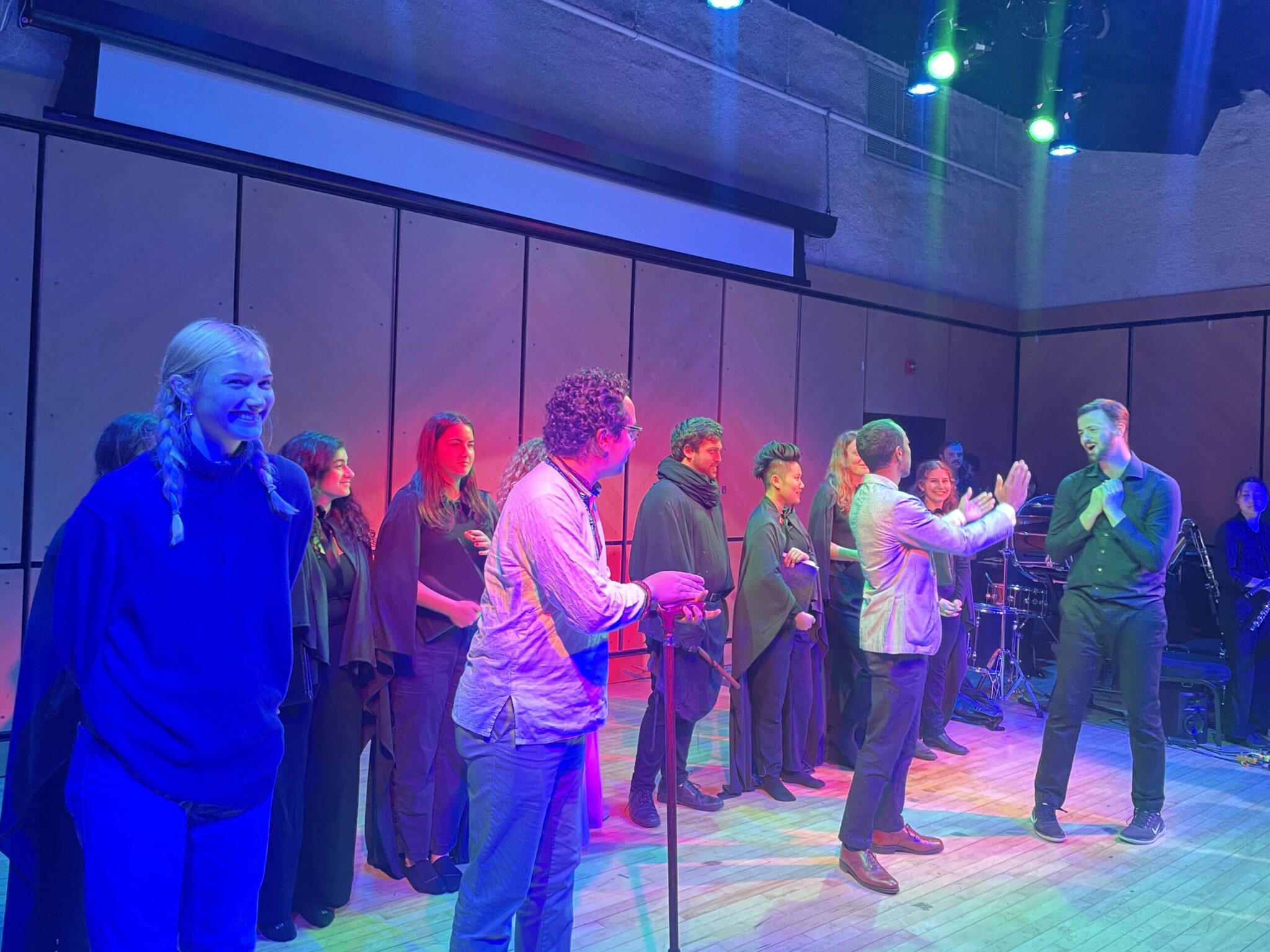Beckman ’23’s “Passage” soars as Yale’s first original opera premiere in 30 years
The opera, composed by Benjamin Beckman '23, reinterprets the 14th-century Japanese text “Atsumori.”

Courtesy of Anabel Moore
“Passage” is the first original opera to premiere at Yale since 1988, as well as the only evening-length opera by a Yale College student to ever premiere at Yale. It was well-worth the wait. Not simply a performance, rather an emotive, well-paced and exhilarating experience, Passage reinterprets the 14th-century Japanese text “Atsumori.”
Composed by Benjamin Beckman ’23, in part to fulfill his Composition senior project, “Passage” premiered in the Saybrook College Underbrook on Saturday evening. Presented by the Opera Theater of Yale College, Yale’s only student-run opera organization, and in collaboration with the Yale Undergraduate Chamber Orchestra, “Passage” featured librettist Adam Haliburton It was directed by Joaquín Lara Midkiff ’25 and produced by Jacqueline Kaskel ’24.
Haliburton, who is completing his doctorate degree in East Asian Languages and Literatures, was quick to note the pleasure of working with Beckman.
“[Beckman] combines knowledge, talent, and taste. I was sure about the first two, but when I started to work with him, it was clear he had all three,” Haliburton said. He added that “Passage” marks the end of more than 10 years at Yale for him, and described the show as a “farewell” to the institution.
“Passage,” which drew from the Noh-period play by Zeami Motokiyo that is a subject of Halliburton’s dissertation, chronicles the trials of competing seaside armies and probes broad philosophical questions surrounding loss, torment, responsibility and absolution.
“It’s a pretty interesting structure similar to that of Virginia Woolf’s novel ‘To The Lighthouse,’” Beckman said. “There’s a beginning and an end, but no middle. It’s very cool, how the piece reckons with agency.”
Beckman centers the composition on a chilling flute melody that repeats and transforms itself throughout the piece, propelling the show forward with astounding technical clarity. His prowess and intimate knowledge of the opera instrumentation — the ensemble was scored for flute, clarinet doubling bass clarinet, piano, percussion, string quartet and electronics, alongside the chorus — is lyrically rich. Grounded in the strengths of each individual contributor, “Passage” offers a resoundingly cinematic experience. Both libretto and score move as one, and this intricacy keeps “Passage” lively and balanced.
Midkiff emphasized the collaboration between Haliburton and Beckman. Indeed, “Passage” is the epitome of the modern opera: timeless and clear, it is obvious that its primary concern is emotive beauty that is both accessible and engaging.
“It’s all about Ben and Adam and the beauty and synergy between the two,” Midkiff added.
Beckman, whose orchestral music has been performed by the Los Angeles Philharmonic, the National Youth Orchestra of the United States of America, and the Yale Symphony Orchestra, has been writing art songs since the age of 15, and has written 27 such pieces since. With an extensive catalog of compositions ranging from jazz-fusion to post-rock to traditional Jewish cantillation, Beckman describes himself as creating “a new and unique sound for the modern world.”
The Opera Theater of Yale College was founded in the fall of 1998.







